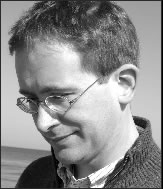By ELENA MANCINI
Pushcart Prize-winning author Paul Maliszewski has written a fascinating social history of faking that spans from the truth excesses of Swiftian satire to the recent fake-memoir bombshells in the publishing world. In addition to chronicling some of the most virtuosic feats of lying in the past three centuries, “Fakers” raises thought-provoking philosophical questions about truth and fiction.
Through his in-depth case studies and interviews with high-profile pretenders, Maliszwewski’s approach to the subject of faking questions the role of ethics and responsibility in both the production and reception of truth claims. A key element in the proliferation of fakery, Maliszweski reminds us, is the public’s demand for it.
Elena Mancini: What is it about hoaxes and counterfeits that most fascinates you?
Paul Maliszewski: I started out being interested in the hoaxers themselves. They’re great characters, and they almost got away with some amazing tricks. Over time I became more interested in the people who fell for the tricks and tried to pay attention to both the hoaxer and the hoaxed.
EM: Your book begins with your recounting your own journalistic fabrications for New York business journals. Why did you do it?
PM: I didn’t fabricate facts or invent quotations in my own journalism. Why I sent in those satires is a bit complicated. I was a reporter who believed my work wasn’t wholly honest. It was journalistically sound, but it was also untruthful. In addition, I wanted to write short stories about business, and yet I could find no good way to marry my literary approach to the business stories I needed to tell, and anyway, I doubted any literary magazine would welcome my satires. That’s how I came up with the idea to submit them to the newspaper. I’d tell my stories not to a literary audience, but to the readers of the newspaper itself.
EM: What do you think is the most extraordinary counterfeit story of recent years?
PM: There are so many to choose from. In the category of a writer making the most extraordinary claims, I would nominate Misha DeFonseca, who wrote that as a child during WWII she walked across Europe, lived in forests, communed with wolves, and had a number of other incredible adventures.
The award for a writer who fooled the greatest number of people for the longest period of time would have to be shared by Laura Albert and Savannah Knoop, who gave inner life and physical form to the novelist JT LeRoy.
EM: The first high-profile account of fakery this year came in the form of plagiarism. It involves New Age author, Neal Donald Walsch and an essay by Candy Chand, which he recently published as his own on Belief.net. What do you think of his response to the episode?
PM: Plagiarists almost always employ the note-taker’s defense, explaining that they jotted down a passage (or an entire essay) and later confused it as their own work. Outright faking isn’t as readily forgiven. Ask Stephen Glass or Jayson Blair or Janet Cooke. They all left journalism for other lines of work. Clifford Irving, whom I interviewed for the book, is still remembered, more than 35 years later, for his part in creating the fake autobiography of Howard Hughes.
EM: Aside from the face-value gains of a successful forgery, what is it about hoaxing that you think appeals to the hoaxer?
PM: I wish I knew. One of the reasons I became more interested in the people who were fooled is that the hoaxers themselves are such unreliable narrators. Even—or especially—when they tell their own stories, they’re hard to trust. When I interviewed Irving, I asked him several times why he fabricated his Hughes autobiography, and he basically rejected the whole notion that people can ever be aware of, let alone honest about, their motives.
Paul Maliszewski will talk with Eric Banks on Wed., Feb. 18, at 7 p.m. at McNally Jackson Books, 52 Prince St.






































